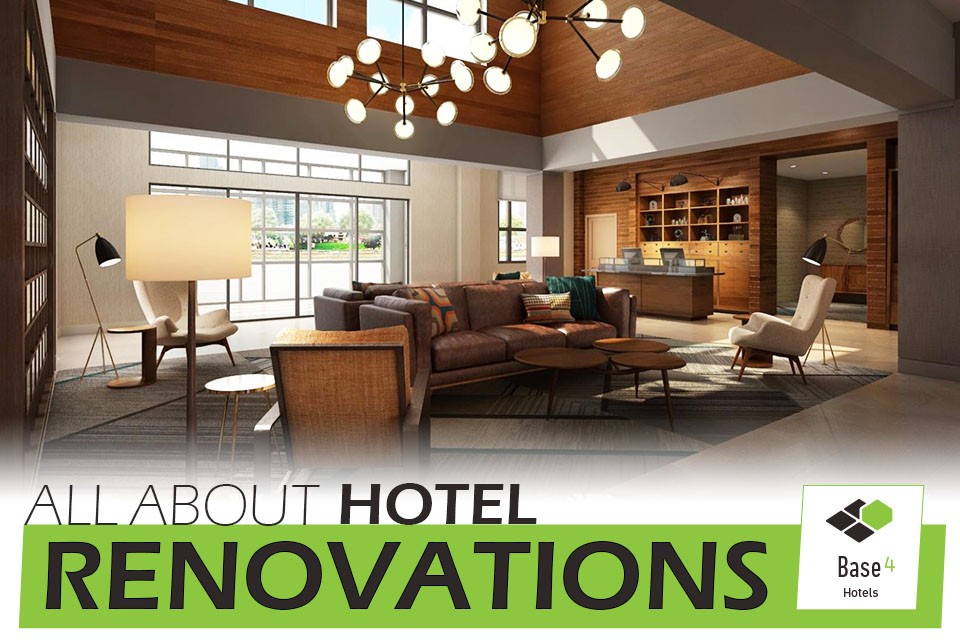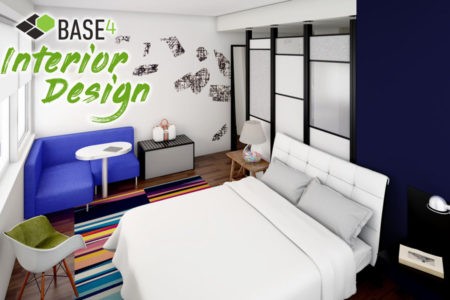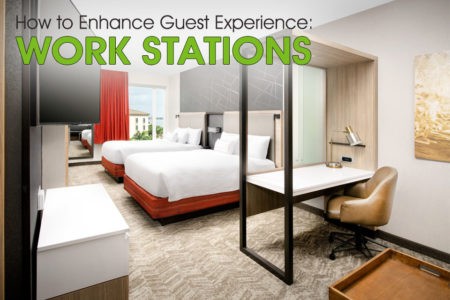How you do it is more important than what you do
Hotel renovations are big business. Whether it’s to stay ahead in a competitive market or to lengthen the property lifespan, most hotels undergo property improvements every few years.
A survey by Choice Hotels stated that 2/3rds of their properties that accomplished renovations this year saw increased business travel revenue compared to non-renovated properties. This is just an example of how property improvement investments can bring growth to your hotel.
![]()
Contents:
![]()
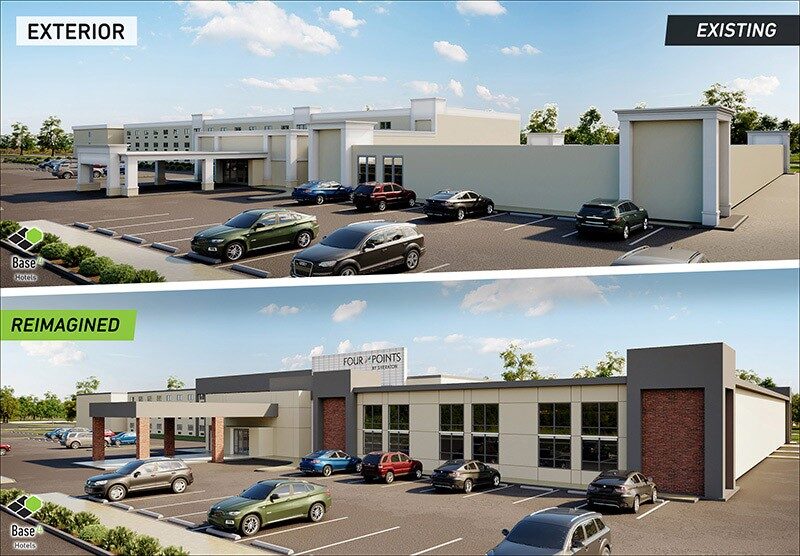
Featuring our ongoing renovation project for a Four Points by Sheraton hotel
There are a few determiners that indicate whether it’s time to ramp up things at your hotel.
Your hotel building’s age determines the scope of a PIP or renovation project. Most hotels undergo superficial renovations every six years or so, while more invasive refurbishments are usually done once in a decade. Then there are older builds or historic buildings that need a complete facelift from the ground up.
Your PIP schedule and recurrence also depend on the brand, franchise, city, or market requirements. Since brands want their hotels to be the best out there, they come up with PIPs to develop a systematic method for property improvement. The owner may run a risk of losing the franchise or paying a fine if they fail to execute a PIP.
A hotelier can even update their scheme by switching to a new brand. Market saturation and conditions have to be looked at and understood to help keep the property up to date and flourishing.
Considering the above points, independent and branded hotels have different approaches to PIPs:
- An independent hotel can schedule their PIPs depending on how their business is growing and thriving in the market.
- A branded hotel has a structured PIP, as well as franchise and brand requisites to cater to. Not to forget new brand prototypes and mandatory property upgrades.
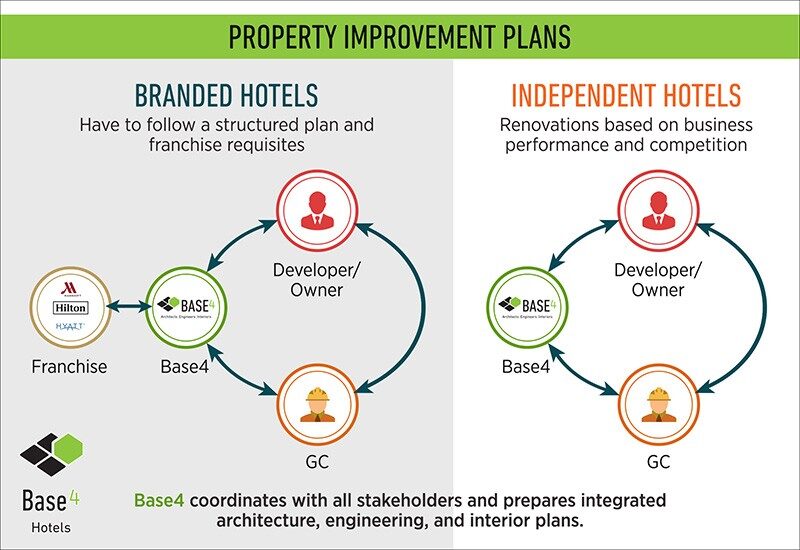
When it’s about time, look for these qualities in your architect, engineer, and designer.
Tightly knit teams: Renovation projects require sophisticated coordination efforts among your architect, engineer, and interior designer.
- By having designers under the same roof, we at Base4 offer the best inter-discipline coordination, customized for every project.
- All your building plans and designs come in a single, integrated document—making it easy for the developer and contractor to read and implement.
Brand & prototype familiarity: Hotel brands tend to continuously update their prototypes to improve guest satisfaction while optimizing resources. Choose a design team that keeps track of every franchise update, so you comply with the best and the latest. It also means fewer revisions and faster turnaround.

Co-ordinated designs: Choose a firm that provides full-service A/E/ID solutions. This ensures that all architectural and engineering plans are well-coordinated with interior design themes right from the beginning.
- At Base4, we have found this to be a major timesaver. A single team comprising of architects, engineers, and interior designers plan your renovations and our clients love how it reduces unnecessary revisions.
- We also make FF&E showcasing a breeze for our clients by preparing video walkthroughs to make our designs vivid.
Vendor Connections: The hospitality industry has been seeing new and innovative products all around. Knowing the right vendor unlocks a whole lot of possibilities.
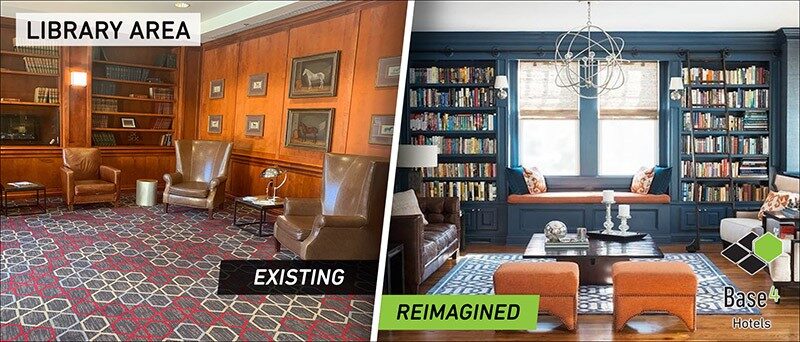
Whether or not mandatory, renovations bring real value to your hotel.
Competitive edge: Depending on your budget for the extras, your hotel can be the talk of the town. It might be worth considering going beyond the bare minimums to attract more visitors. A new concept, theme, or a social hub can be just it!
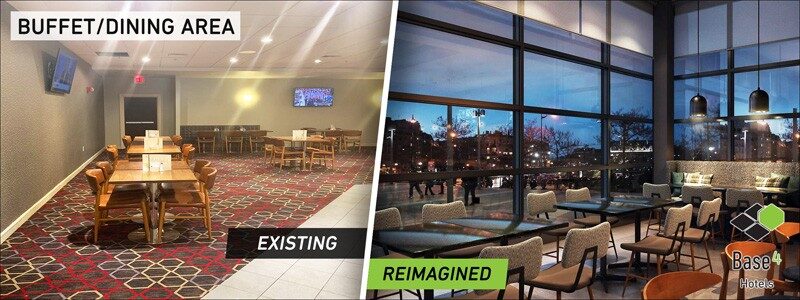
Longer lifespan: A successful renovation ensures that you won’t have to worry about small repairs now and then. The freshness of the hotel will surely go a long way with guests and not to forget the added years to your building’s lifespan.
Better resell value: If you’re looking to sell off the property a few years down the road, the refurbishment will add value to your price point and be attractive to potential buyers.
These legit concerns can be dealt with efficiently.
Cost and financing: Based on the factors discussed above, the process of renovating a hotel can be a minor affair or a capital-intensive overhaul.
- Careful planning and choosing a well-connected and efficient design team can go a long way!
Project timeline: The intent of the PIP is always different for various projects or brands. The standard renovation time is around 18-20 months, but it can vary greatly with the level of alterations the brand/franchise wants to make.
- Several projects undergo a renovation without halting hotel operations. Contractors may have to work in phases and odd hours to execute this.
The People: All the stakeholders that you hire obviously make an impact on your project schedule. Hiring not only the best but most efficient people can accelerate the time and quality of your project.
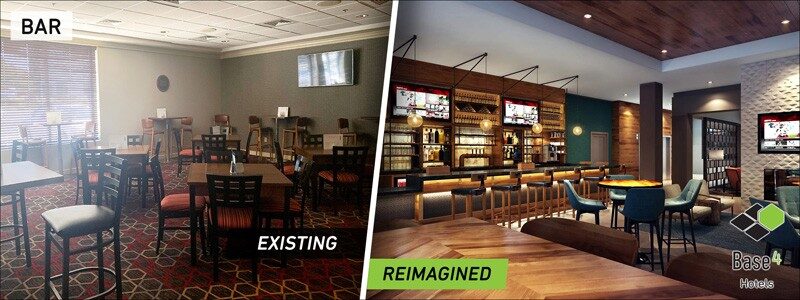
You can save yourself the headaches and maximize revenue throughout the process by hiring the right team of design professionals and contractors.
At Base4, we make the tedious process of renovation, smooth and efficient. Early intervention can eliminate half the struggles and help deliver a stunning final product. The dedicated team of designers, architects, and engineers works together in a single team, keeping the process efficient, cost-friendly, and hassle-free.
Thinking of sprucing up a property? Do not hesitate to request a complimentary design consultation!

Thank you,
Blair Hildahl
BASE4 Principal
608.304.5228
BlairH@base-4.com
![]()

